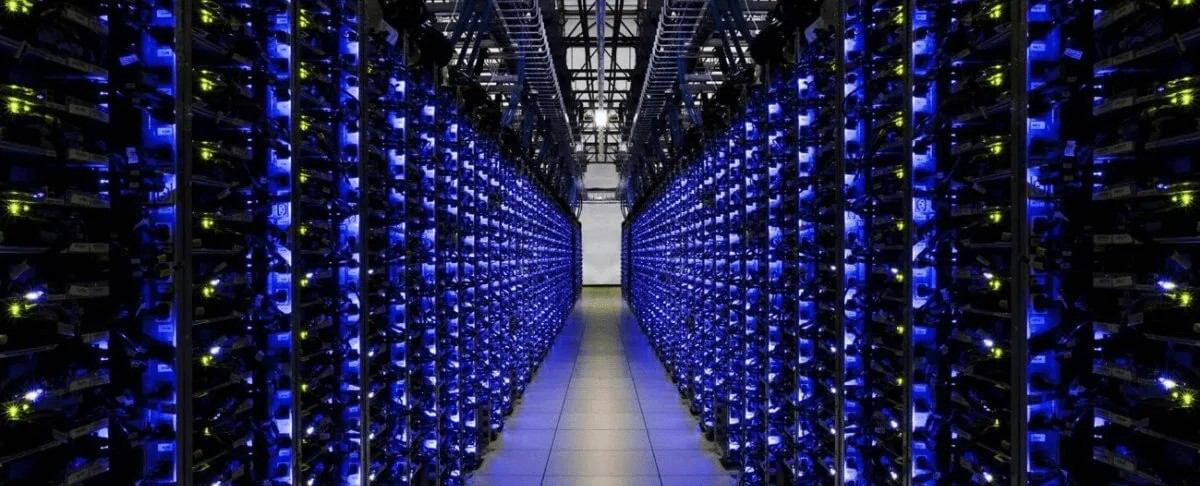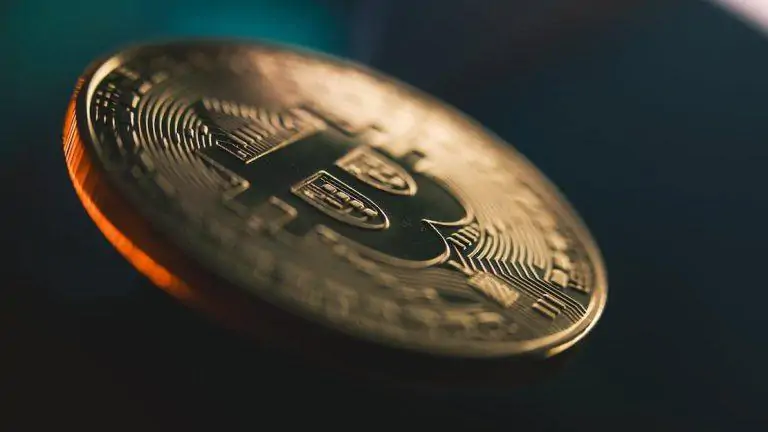Greece has made significant efforts to adopt a tax policy on crypto assets as the use of cryptocurrencies grows globally. In January 2025, the Greek government introduced new tax regulations for cryptocurrency transactions.
26.05.2023

What is cryptocurrency mining?
Mining (from the English mining ) is the process of creating new blocks in the cryptocurrency blockchain. This process is performed using the computing power of computers that solve complex mathematical problems and confirm transactions made on the network.
Miners (people or organizations engaged in mining) use special equipment such as ASIC miners, graphics processing units (GPUs) or central processing units (CPUs) to perform these tasks and receive a reward for their efforts in the form of cryptocurrency.
In addition, miners also ensure the security of the blockchain, as they must verify transactions and make sure that they are valid and do not violate the rules of the network. This process also helps to maintain the decentralization and reliability of the network, since each miner is a node of the blockchain and confirms the work of other nodes.
Mining is an important component of many cryptocurrencies, and its complexity may vary depending on the number of miners on the network and how quickly they can solve problems.
Pros and cons of cryptocurrency mining
Advantages of cryptocurrency mining:
- Receiving a new cryptocurrency as a reward for participating in the process of creating new blocks and confirming transactions.
- The possibility of earning on the growth of the rate of the cryptocurrency that you mine.
- The variety of cryptocurrencies that can be mined allows you to choose the most profitable cryptocurrency for mining at the moment.
- Mining ensures the security of the network and helps to support the decentralization of the blockchain.
Disadvantages of cryptocurrency mining:
- The complexity of mining may vary depending on the number of miners in the network, which may affect the profitability of mining.
- The high cost of the equipment needed for mining, especially for more popular cryptocurrencies.
- The high level of energy consumption associated with the mining process can be expensive and negatively affect the environment.
- Mining can be technically complex and require certain knowledge and skills to implement it.
- In some countries, mining may be prohibited or restricted by law.
Types of cryptocurrency mining
- CPU mining. The CPU of the computer's central processing unit (CPU) is used to perform complex calculations necessary to verify transactions and create new blocks in the blockchain.
- GPU mining. With this type of mining, graphics processors (GPUs) are used to perform more efficient calculations. This mining method has become popular with the advent of cryptocurrencies, which can be mined using an algorithm that runs best on the GPU.
- ASIC mining. Perhaps one of the most popular types of crypto mining, it uses specialized devices called ASIC miners, which were developed specifically for cryptocurrency mining. These devices have very high performance and efficiency, but can be expensive and difficult to use.
- Cloud mining. Provides users with the opportunity to rent computing resources of remote servers for cryptocurrency mining.
- Mining on smartphones. There are many applications that allow you to use the computing power of a smartphone for mining cryptocurrency. However, due to the limited power of the smartphone, this method of mining is not effective and may even be unprofitable.
What is needed for cryptocurrency mining?
To mine cryptocurrencies, you will need:
- A computer can be either a separate computer or a special mining rig. It is recommended to use a computer with high performance, since mining requires a lot of computing power.
- The software is a special software for mining crypts that allows you to use the computing power of a computer to solve complex mathematical tasks that are necessary to create new blocks and verify transactions in the blockchain.
- A cryptocurrency storage wallet is a program that allows you to store and manage your cryptomonets. It is also necessary to receive a reward for mining and sending cryptocurrencies to other wallets.
- Internet access — cryptocurrency mining requires a constant Internet connection to ensure communication with the blockchain and receive tasks for solving mathematical problems.
- Electricity — cryptocurrency mining requires a lot of computing power, which in turn consumes a significant amount of electricity. So for mining it is necessary to have a stable and reliable power source.
- Graphics Processing Unit (GPU) — for mining certain cryptocurrencies, such as Ethereum, it is necessary to have a graphics processor that is specialized for processing tasks using parallel computing.
- ASIC miners — for mining Bitcoin and some other cryptocurrencies, you can use specialized devices called ASIC miners, which are specially designed to solve mathematical problems related to the blockchain.
How does the cryptocurrency mining process work?
- Transaction verification. Cryptocurrencies are based on blockchain technology, where every transaction must be verified and confirmed by network participants. Miners check transactions for the presence of sufficient funds in the sender's account and the correctness of the transaction.
- Creating a block. After verifying transactions, miners collect them into a block and add them to the blockchain. To create a new block, miners solve a complex mathematical problem that requires a lot of computing power.
- Receiving a reward. For creating a new block and adding it to the blockchain, miners receive a reward in the form of a certain amount of cryptocurrency.
- Distribution of the new block. After creating a new block, miners send it to other nodes of the network for verification and confirmation. If a block passes verification and confirmation, then it becomes part of the blockchain.
- Updating the blockchain. The blockchain is updated with the addition of a new block that contains new transactions and previous blocks. This creates a block chain that is a reliable and secure record of all transactions on the network.
The mining process requires high computing power and electricity, so miners are usually grouped into groups called pools for more efficient mining and increased chances of receiving rewards.
What are pools and farms for cryptocurrency mining?
Pools and farms for mining cryptocurrencies are various ways of organizing the process of mining cryptocurrencies using computing power.
Mining pools are groups of miners who pool their resources to increase the chances of getting rewarded for a block. When the pool finds a block, the reward is distributed among the pool participants in proportion to the contribution of each miner to the total computing power.
A mining farm is a large number of specialized computers that are used for mining cryptocurrencies. Mining farms can consist of hundreds or even thousands of computers working together to solve mathematical problems necessary to create new blocks and receive rewards.
One of the main advantages of mining pools is that they allow you to increase the probability of receiving a reward for a block by combining the resources of several miners. However, participation in the pool entails commission payments, which can be high.
Mining farms can be more efficient than mining on a regular computer, but also require significant investments in equipment and electricity.
What are the risks of cryptocurrency mining?
Cryptocurrency mining, like any other investment activity, involves risks. Some of the risks of cryptocurrency mining include:
- High equipment costs — for cryptocurrency mining, it is necessary to have specialized equipment, which can be very expensive. In addition, this equipment may become outdated and unsuitable for mining new cryptocurrencies.
- High cost of electricity — cryptocurrency mining requires a lot of computing power, which consumes a lot of electricity. If the cost of electricity is high, it can significantly increase mining costs.
- Risk of loss of cryptocurrencies — when mining cryptocurrencies, there may be errors associated with sending or storing cryptocurrencies. If you lose your wallet or forget your password, you may lose your cryptocurrencies without the possibility of restoring them.
- Unstable cryptocurrency exchange rate — the cryptocurrency exchange rate can fluctuate significantly in short periods of time. This can lead to significant losses if you sell your cryptocurrencies during a period when their value is at a low level.
- Fraud — in the field of cryptocurrency mining, scammers can act who offer fake mining programs or equipment that does not work or does not meet the stated characteristics.
- Hacker Attacks — Hackers may try to hack your mining devices or software to gain access to your cryptocurrencies or steal computing power for their own purposes.
- Legal issues — Legislation regarding cryptocurrencies and mining may vary in different countries. Some countries may ban crypto mining.
Is cryptocurrency mining legal?
The legality of cryptocurrency mining depends on the country in which it is carried out. In some countries, cryptocurrency mining is completely legal and regulated by government agencies, while in other countries its regulation is undefined or limited. In addition, in some countries, tax obligations related to cryptocurrency mining may be established.
Therefore, before starting cryptocurrency mining, it is necessary to familiarize yourself with the legislation of your country and understand whether mining is legal and what rules and requirements must be met to comply with the law.
Countries where cryptocurrency mining is prohibited, some examples:
- China: In 2021, China banned cryptocurrency mining in general, declaring it illegal. Previously, mining was widespread in the country, but the government decided to limit it due to electricity consumption and possible financial risks.
- Algeria: cryptocurrency mining is prohibited by law, violators can be brought to justice.
- Nepal: The National Bank of Nepal banned the use of cryptocurrencies in 2017, including mining, exchange and trading.
- Bolivia: cryptocurrency mining is prohibited by law.
- Ecuador: In 2014, the government of Ecuador banned the use of cryptocurrencies, including mining, and launched its own digital currency.
It should be noted that some countries, such as Russia, may have restrictions on cryptocurrency mining, but they do not consider it prohibited. Cryptocurrency mining is allowed in most countries of the world. However, the rules governing mining may vary from country to country, and there may be tax obligations associated with cryptocurrency mining.
Countries where cryptocurrency mining is allowed, some examples:
- USA: cryptocurrency mining is allowed in the USA and is not considered illegal. However, tax obligations can vary by state, so miners should be attentive to the tax rules of their local authorities.
- Canada: Cryptocurrency mining is also allowed in Canada and is not considered illegal. As in the US, local tax rules may vary, and miners need to make sure they comply with the tax rules of their provinces and territories.
- Germany: Cryptocurrency mining is also allowed in Germany. However, as in other countries, tax obligations may be established with respect to income received from mining.
- Sweden: Cryptocurrency mining is also allowed in Sweden. However, the country has high electricity costs, which can affect the profitability of mining.
The list of countries where cryptocurrency mining is allowed can be continued, but in any case, miners need to familiarize themselves with local regulations and tax obligations in order to avoid violating the law.
The future of mining
Cryptocurrency mining is an important process because it allows you to maintain the security and integrity of the blockchain network. Mining crypto assets means burning more electricity than ever. Combined with the global shortage of chips and regulatory requirements, the future for crypto miners seems wild.
There will be new clean energy initiatives to support the cryptocurrency mining industry, create more jobs in the field of renewable energy and support local communities. There are also huge opportunities to improve mining technologies that consume less electricity, produce less noise and take up less space.
Read also:
1. Where to store cryptocurrency and how not to lose your money?
2. How to choose a cryptocurrency to buy?




